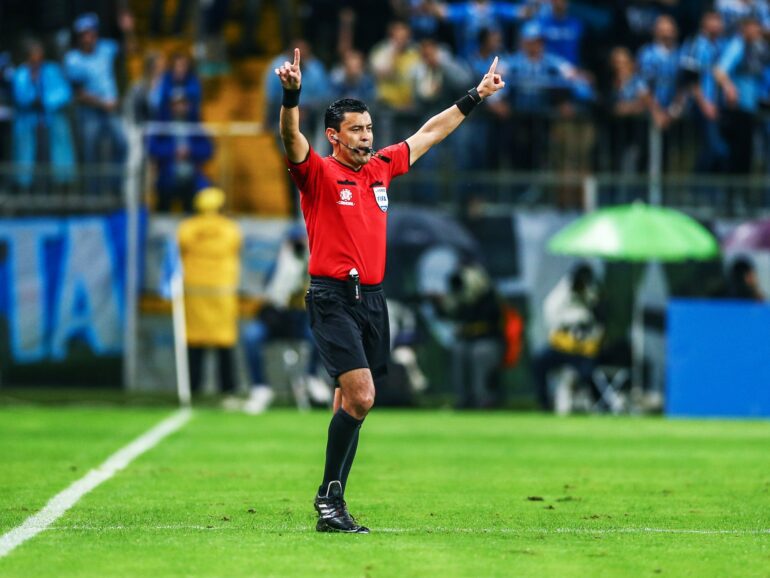TL;DR:
- AI could replace human referees in football within the next 30 years.
- AI integration in officiating is already visible through VAR and goalline technology.
- Increasing data quality and computer vision advancements drive AI adoption.
- Virtual assistants may guide human referees before a full AI takeover.
- AI extends beyond officiating, aiding teams in player selection and tactical decisions.
- AI offers predictive and prescriptive analytics for game dynamics.
- Embracing AI in football provides a competitive edge.
Main AI News:
In the rapidly evolving landscape of sports officiating, the future holds an intriguing prospect: the potential replacement of human referees with artificial intelligence (AI). While AI’s influence in officiating is already evident through the use of VAR (Video Assistant Referee) and goalline technology, experts believe we are on the cusp of a significant AI revolution in this field.
Aldo Comi, the Chief Executive of Soccerment, a leading global football analytics provider, predicts a substantial transformation. “Computer vision will become increasingly effective in the next few years, and the number of cameras on the pitch will continue to rise,” Comi states. “The wealth of data available, combined with the quality of AI models trained on this data, may lead to AI-powered machines taking over the role of on-field human referees.”
In Comi’s vision of the future, AI’s role could extend beyond officiating. He envisions a scenario where traditional linesmen might be the first to vanish from the game, with referees connected to virtual assistants guiding them to make more informed decisions. Ultimately, he believes that within 20 to 30 years, referees themselves could be replaced entirely by AI, though he acknowledges the complexity of such a transition.
The integration of AI and machine learning is not limited to officiating; it’s already making waves within the world of football. Data analytics have empowered clubs like Brighton and Brentford to disrupt the established Premier League hierarchy by identifying high-quality signings that yield substantial profits.
However, the real game-changer lies in the deep integration of data. Managers could leverage AI as a virtual coach, assisting with team selection and tactics. Comi explains, “AI can introduce novel ways of thinking about the game. With high-quality data, you can develop a virtual assistant that better understands on-field dynamics. Predictive analytics can offer insights into the probabilities of events in the next five or ten minutes.”
This predictive power enables AI to provide prescriptive analytics, offering suggestions to enhance a team’s performance, such as player substitutions or tactical adjustments. The AI’s recommendations would undergo scrutiny by assistant coaches before reaching the manager, who would make the final decision.
In this AI-augmented future, professionals won’t be replaced but rather empowered by technology. Comi emphasizes that clubs embracing this transformation will gain a significant competitive advantage over those who hesitate.
While trust in AI may take time to build, evidence of its effectiveness is already emerging. Clubs like Brentford and Brighton have demonstrated that AI can provide substantial advantages over traditional data analytics. Comi concludes, “The advantage that AI can offer is several times more impactful than traditional data analytics.”
Conclusion:
The gradual integration of artificial intelligence in football, from officiating to coaching, signifies a transformative shift in the industry. The potential replacement of human referees with AI, coupled with the use of virtual assistants for enhanced decision-making, promises greater efficiency and accuracy in the sport. Clubs and organizations that embrace this technological evolution are poised to gain a significant advantage in an increasingly competitive market.

